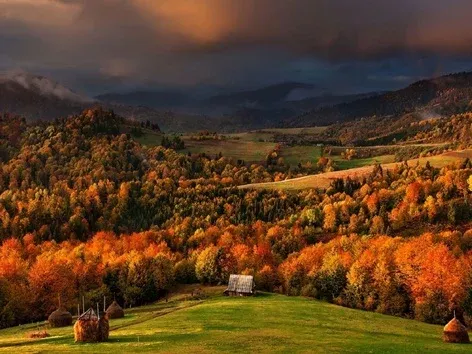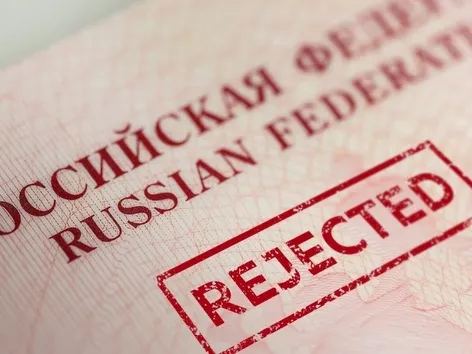Rosh Hashanah: peculiarities and traditions of celebrating the Jewish New Year that you didn't know about before

Rosh Hashanah has many peculiarities, and some of them are not just for Jews. Learn more interesting facts about the history, customs, and traditions of the Jewish New Year
This year's Rosh Hashanah celebration falls on September 15-17, and Hasidim from all over the world have already begun to arrive in Ukraine. Rosh Hashanah is one of the most important Jewish holidays, and therefore the pilgrims are not deterred by threats and possible provocations from russia.
Rosh Hashanah is a special holiday with many ancient customs and traditions that Jews believe apply not only to them, but to all of humanity. This year, Jews celebrate the 5784th year of the Creation of the world.
The main features of Rosh Hashanah
Jews believe that God keeps the Book of Fates, and it is on Rosh Hashanah that the fate of everyone for the coming year is decided. That is why it is customary on this day to analyze and rethink one's actions, words and thoughts, as well as to pray fervently. After all, as they say, prayer can influence God's decision to "write in the Book of Fates."
In addition, despite the fact that this day is considered the Jewish New Year, Heaven's judgment is being performed on all of humanity, and therefore Jews emphasize that everyone should pray during Rosh Hashanah.
Traditions of celebrating the Jewish New Year
During the celebration of the Jewish New Year, it is customary to blow a shofar (a wind instrument made from the horn of a ram) in the synagogue, symbolizing an appeal or a call to the Divine Court, which, so to speak, calls for repentance.
During the festive meal, it is customary to dip a round challah (traditional Jewish bread over which a blessing has been pronounced) in honey to ensure that the coming year will be successful and sweet. However, this is only one of the traditions, as every dish on the holiday table has a meaning and a certain symbolism for Jews. For example, dates symbolize the disappearance of enemies from life, and pomegranates are supposed to multiply merit.
It is believed that bitter and sour foods should not be eaten on New Year's Eve in order not to bring misfortune and trouble. Also, Jews do not eat nuts on these days, because the numerical value of the word "nut" in Hebrew is equal to the numerical value of the word "sin."
Visit Ukraine on social media: Telegram | YouTube | Instagram | Facebook | Twitter | TikTok
Another important tradition is tashlich. It symbolizes purification from sins. Thus, on the first day of the celebration, Jews must go to a river or stream and shake out the contents of their pockets into the water, thus freeing themselves from their sins. It is noted that the reservoir should be densely populated with fish, as they symbolize fertility. It is also believed that water protects its inhabitants from envious people.
Interesting facts about Rosh Hashanah
1. It is believed that on this holiday one should not "give a word to Satan," and therefore Jews do not mention or talk about their sins. For the same reason, in order to confuse Satan, no blessings are said in the morning prayer on the Saturday before the New Moon.
2. Another name for the Jewish New Year is Judgment Day. And despite the associations of people in the world, it is considered a joyful day.
3. Jews do not go to bed because they believe that if they do, they will sleep through their good luck.
4. Rosh Hashanah is considered the beginning of the year, but Tisha B'Av (the first month of the year) is the seventh month in the Jewish calendar.
5. During the celebration, it is customary to eat the head of a fish, because "everything begins with the head."
6. Jews are forbidden to light or extinguish fire on this day, and therefore all candles are lit with a transferred fire, usually from the shamash lit the day before. Even a gas stove or a match should not be extinguished; the latter should burn out by itself.
We remind you! Churches and cathedrals today are not only centers of pilgrimage, but also the cultural heritage of Ukraine, as some of them are true works of art and architecture. Read more about the country's most beautiful churches and monasteries, which are breathtaking to behold in our previous article.
Photo: Unsplash
You may be interested in:
Visit Ukraine Donation - make a good deed and an important contribution to the Victory of Ukraine;
Visit Ukraine Legal advice - comprehensive legal support on entry to Ukraine;
Visit Ukraine Tours - the largest online database of tours to Ukraine for every taste;
Visit Ukraine Merch - choose patriotic clothing and accessories with worldwide delivery;
Visit Ukraine News - get the latest news and updates in our Telegram channel;
Cooperation - cooperation and advertising integrations with Visit Ukraine and Visit World projects.
Recommended articles
2 min
Reisen
How Ukrainians travel around Ukraine during the war: results of a recent survey
During the war, domestic tourism in Ukraine began to grow rapidly. Find out more about how Ukrainians feel about travelling during martial law and what kind of holiday they prefer
08 Sep. 2023
More details2 min
Krieg
Ukraine's counteroffensive in full swing: how much time the AFU has to break through enemy defenses
Cold and wet weather will soon arrive in Ukraine, which will clearly affect the situation on the battlefield. Find out more about how long the Ukrainian army will be able to maneuver on dry ground and what to expect from the Ukrainian armed forces' counteroffensive afterwards
11 Sep. 2023
More details2 min
Reisen
Top places in the Carpathians that look especially beautiful in the fall
The Carpathians fascinate with their beauty and local flavor at any time of the year. But in the fall, the lakes, waterfalls, meadows, and real natural wonders nestled among the fluffy mountains are most impressive. Find out about the top 11 locations where you can relax and discover the beauty of the Ukrainian mountains for a weekend or longer
12 Sep. 2023
More details2 min
Beliebt
Unwanted tourists: which countries have restricted entry for russians?
Many countries around the world have restricted entry to their territory for citizens of the aggressor country. Moreover, russians were banned from bringing personal belongings and cars to the EU. Learn more about the countries where russian citizens are now unwelcome tourists
12 Sep. 2023
More details

